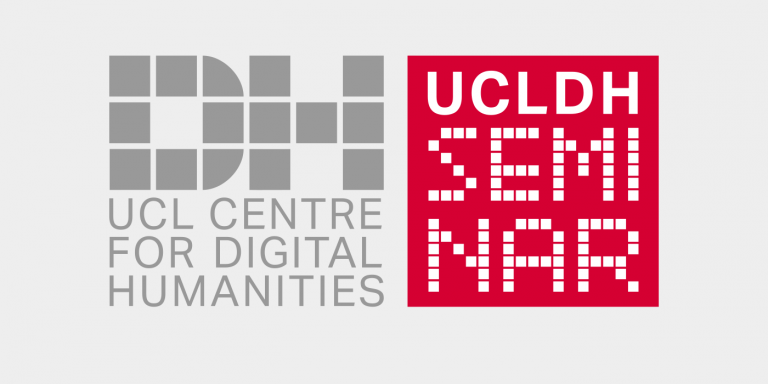Embodiments, Subjectivities and Reconfigurations of Urban Spaces via GPS Mobile Applications
20 May 2015, 5:30 pm

Event Information
Open to
- All
Organiser
-
UCLDH
Location
-
UCL Centre for Digital HumanitiesGower StreetLONDONWC1E 6BTUnited Kingdom
In his research, Regner Ramos explores the relationship between bodies, urban space and mobile technologies by studying the affectional and spatial properties of three GPS-based mobile applications-Grindr, Mappiness and Waze. Guided by cyberfeminist theories, he approaches these apps as a series of material objects, particularly when addressing the physical and spatial properties of the screen/interface; through interface and performance the apps create a sense of othering and difference, as theorised by Donna Haraway, Rosie Braidotti and Katherine Hayles. Thus, his dissertation seeks to address and understand the ways in which GPS apps create new spatiotemporal relations for bodies, as well as how these relations are made visible/mobilised by the interfaces' spatial and urban representations.
The dissertation upholds that GPS-based apps enable the construction of new digital subjects/embodiments. By using Waze-a satellite navigation app which uses crowd-sourced information to help drivers find the quickest route to their destination in real time-as a case study, he explores the physical act of driving alongside the act of digital guiding, capitalising on the hybridity between person, space and machine. He bases his discussions on the interviews conducted with 15 Waze users, which highlighted the relationship between bodies and technology and how these create new ways of performing identity in space.
Through Waze's interface, spatiotemporal relations acquire new manifestations as Wazers experience a dual embodiment-one physical and one digital-which seem to occupy disparate positions in different times. Through this splitting of embodiments, Mr Ramos will discuss the Posthuman, as well as the alternate forms of community and digital citizenship that are produced through and by the app. He sees these embodiments as situated; they are localised and they are place-based; they have an intrinsic relation to time, and they attest to new representations and inhabitations of spaces and territories.
All welcome and the talk will be followed by drinks. Please note that registration is required.
 Close
Close

